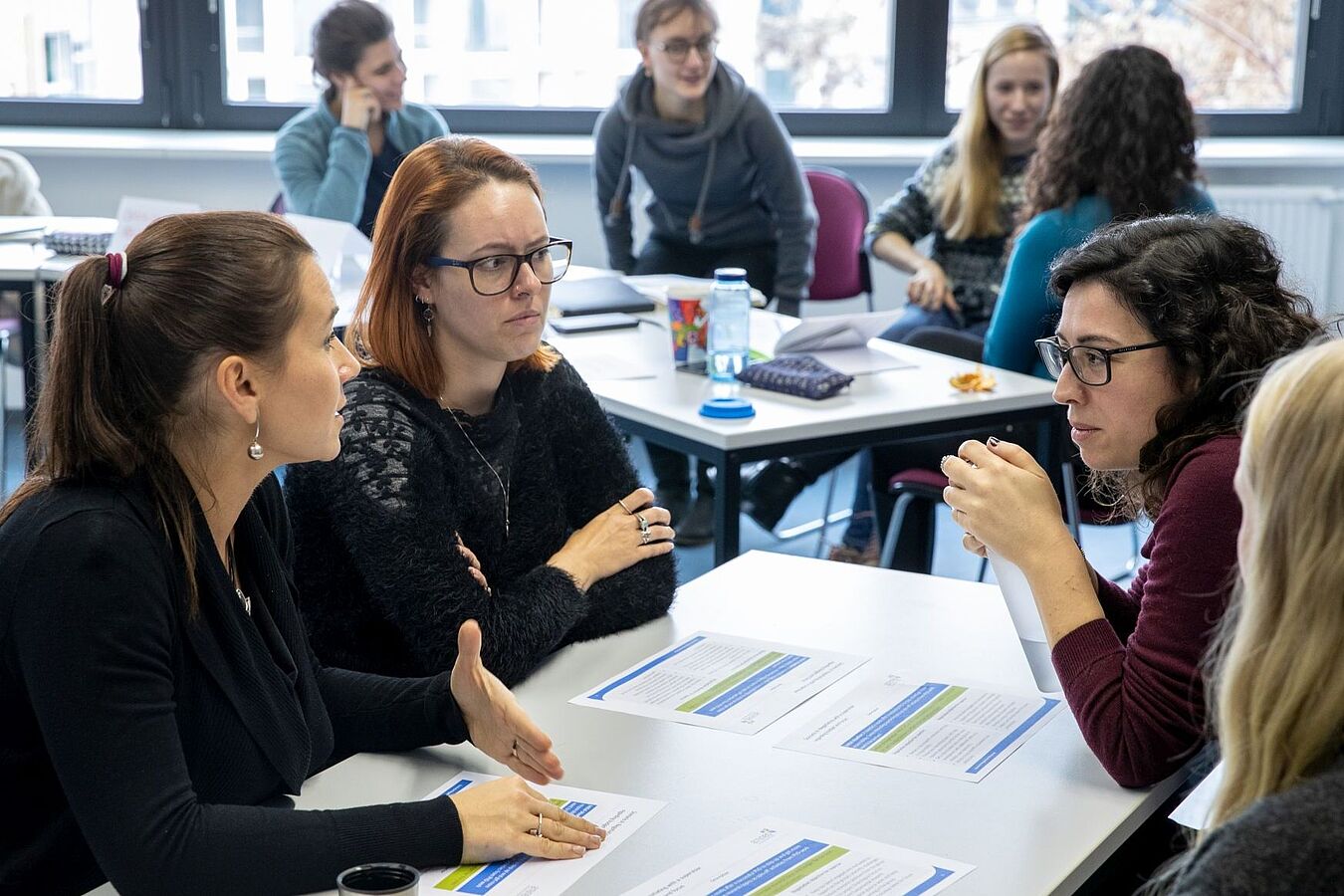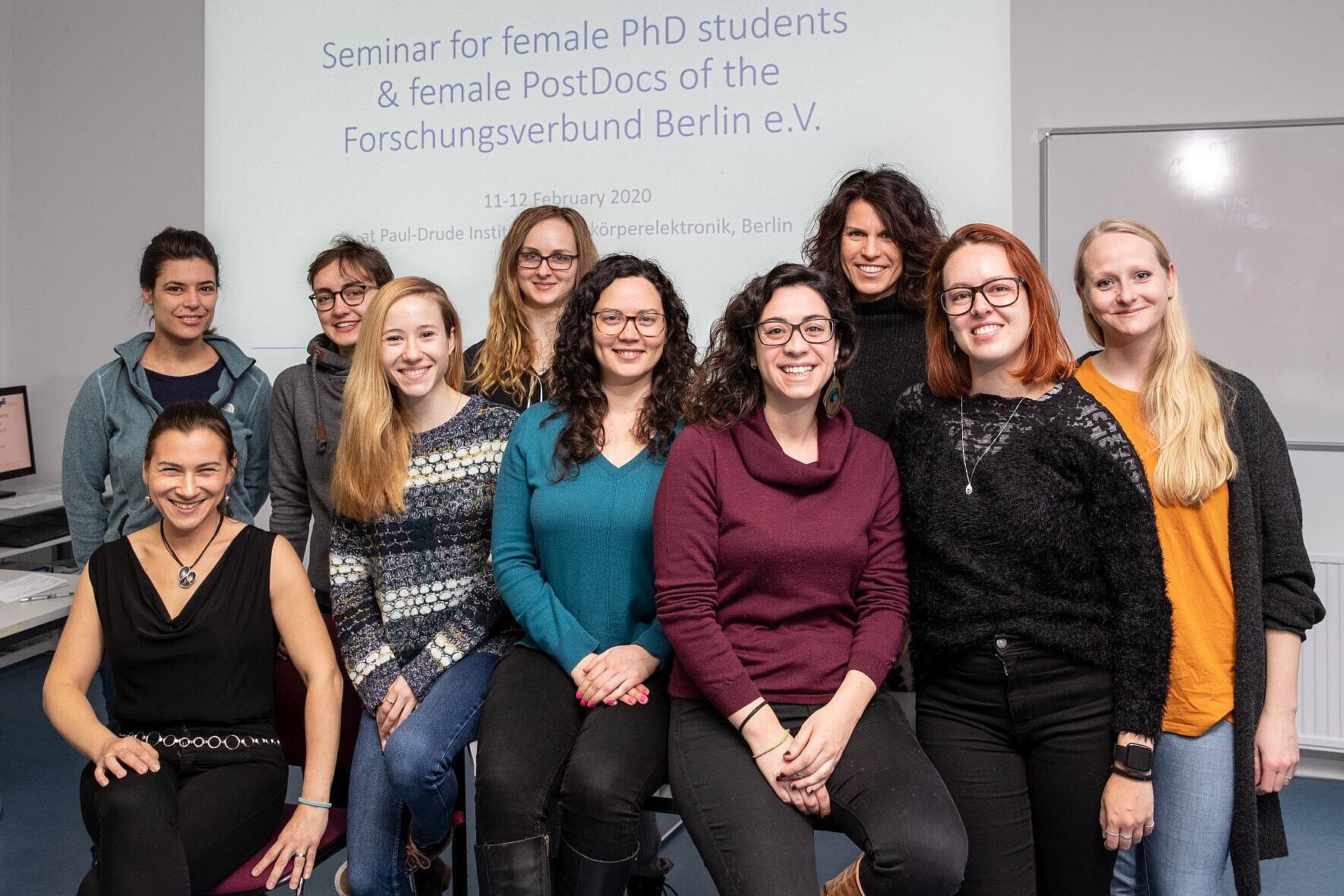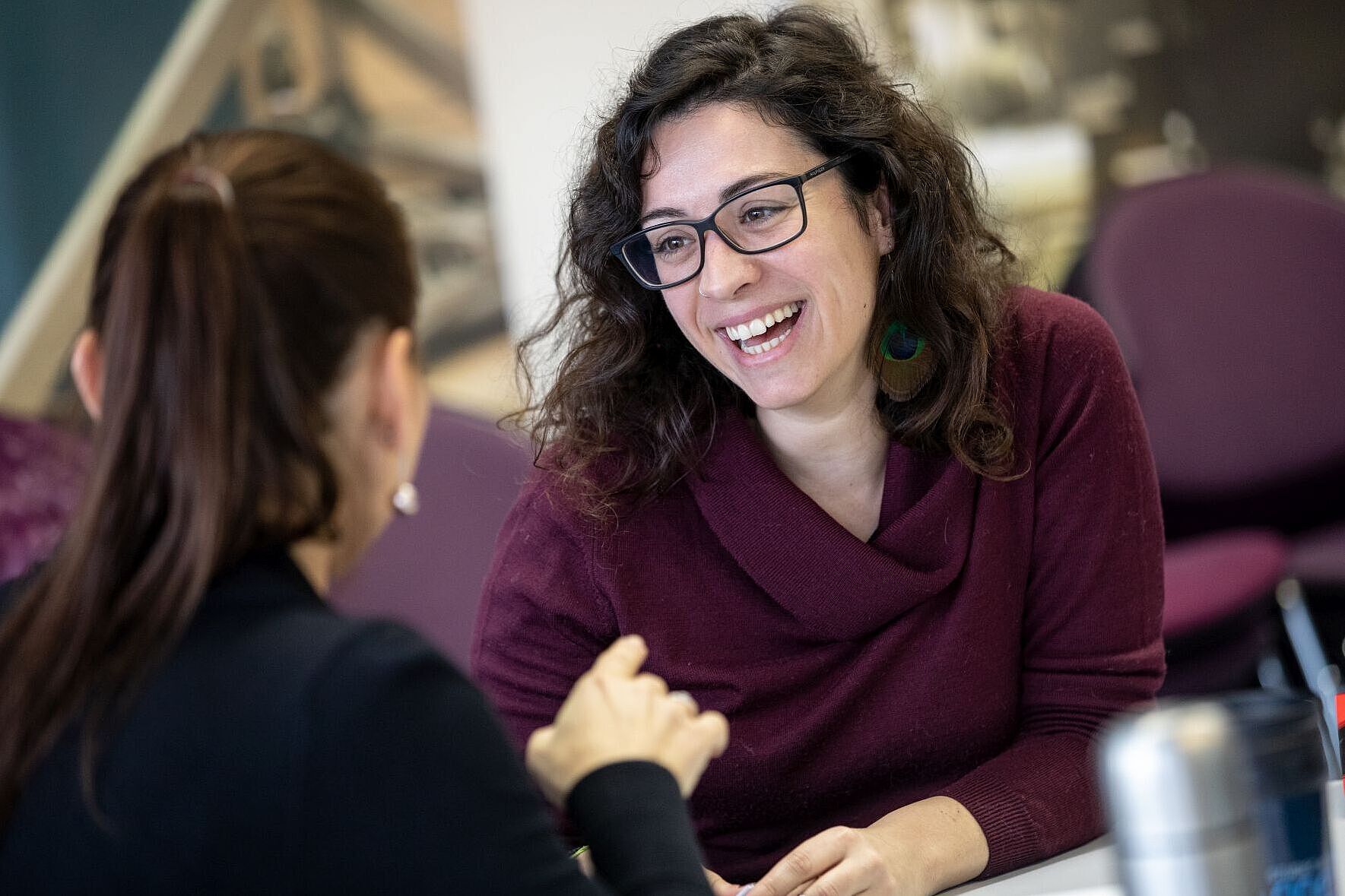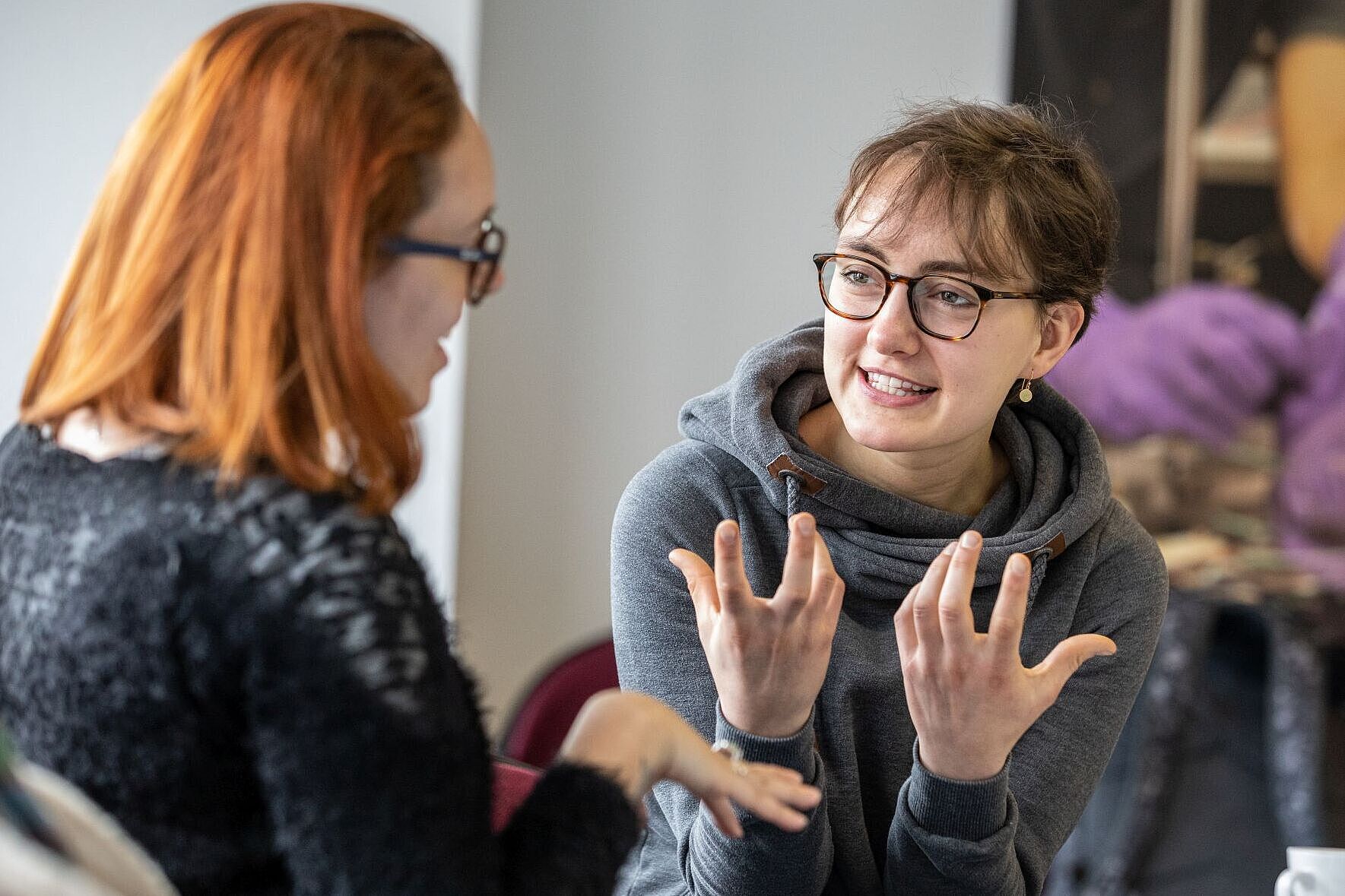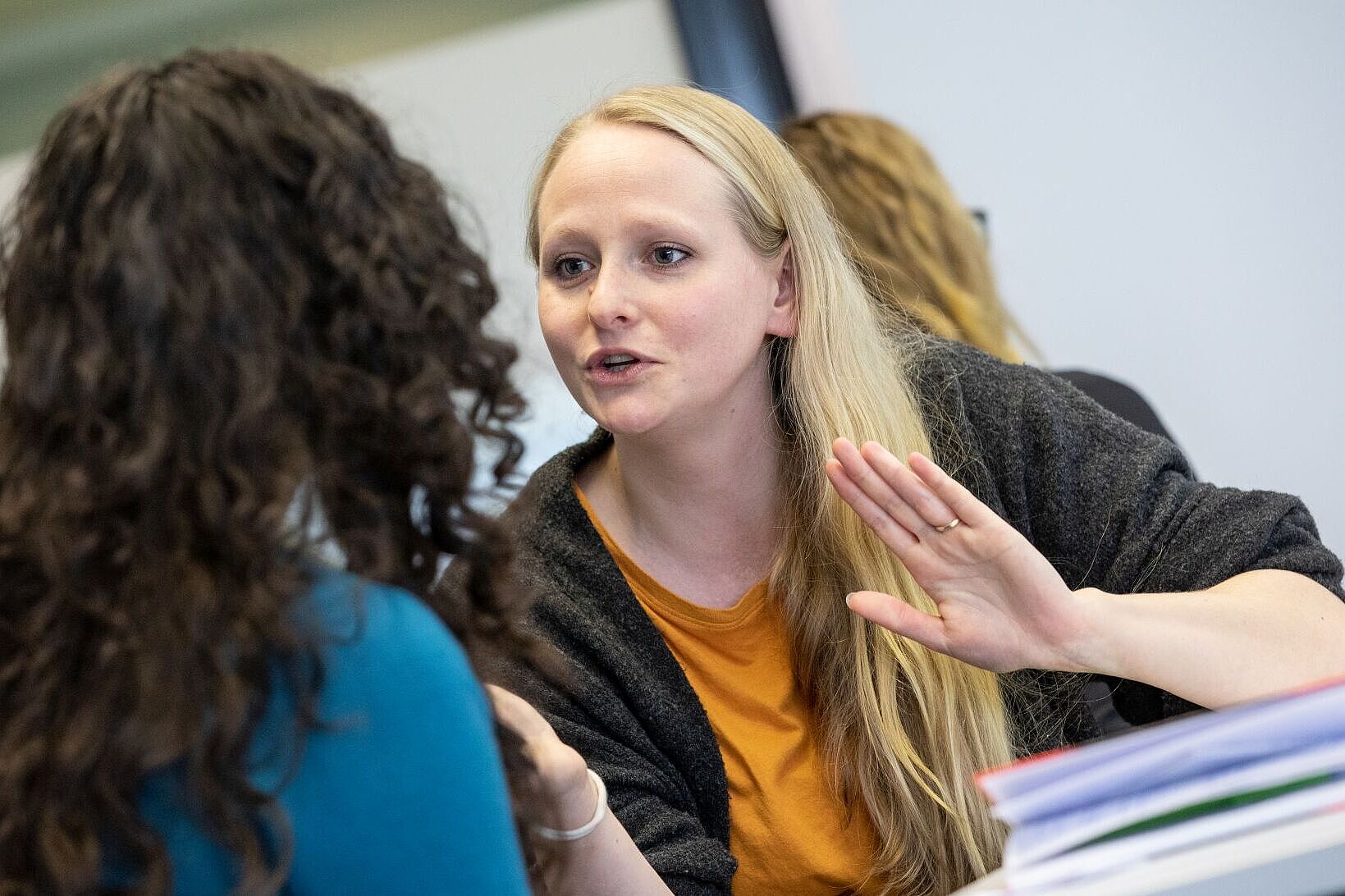For many years, “Promotion of Women in Science” has been on everyone’s tongues and is covered in a wealth of science-policy papers. Scientific organizations in Germany appoint equal opportunity officers, develop guidelines, and undergo regular audits, meant to control their implementation. But recent statistics show that still many women drop their academic career during the post doctorate phase: while the proportion of female PhD students is on the rise, this figure falls to less than 30 % for habilitated female researchers. So what can or should we do differently? Obviously, pragmatic support could help.
This February, during two intense days, the Paul-Drude-Institut für Festkörperelektronik (PDI) hosted the Forschungsverbund Berlin e.V. (FVB) workshop for female doctoral students and postdocs. “I designed this interactive and dynamic training to equip young female researchers with knowledge and tools for four of the more demanding challenges of an scientific career: work-life-balance, science communication, negotiation, and research funding”, says Kai Hablizel, the equal opportunity officer at PDI, who organized and moderated the workshop. “As an add-on, the participants built a solid network”.
The workshop set off with a heated and candid discussion, mediated by Regine Steinhauer, an auditor from berufundfamilie Service GmbH: how to breathe life into the notorious “work-life-balance” of your scientific career? The participants agreed that while cultural change in an organization has to be triggered at the management level, it is crucial to acknowledge one’s own individual boundaries or, as put by Regine Steinhauer, “to be your own anchor”. “It felt good to confirm that the way I personally strike a balance between work and life makes sense. Work-Life balance is a self-tailored suit of rules that we need to protect from the opinions of others,” shared Dr. Mina Bizic, the postdoc researcher at the Leibniz-Institute of Freshwater Ecology and Inland Fisheries (IGB).
An open, friendly, and accepting environment set by this discussion prevailed throughout both days. Each following workshop – be it science communication, negotiation techniques, or pragmatic insights into EU funding opportunities – was designed to be highly interactive and dynamic in a way that encouraged participants to directly test new skills on safe ground. “It never got boring and never was reduced to monotonous slideshows, as is often the case at such workshops: everyone was engaged in discussions and activities, shared their experiences and asked questions,” says Janina Lebendig-Kuhla, the doctoral student from Max Born Institute for Nonlinear Optics and Short Pulse Spectroscopy (MBI).
All participants are sure to stay in contact and are looking forward to more of those empowering workshops.
